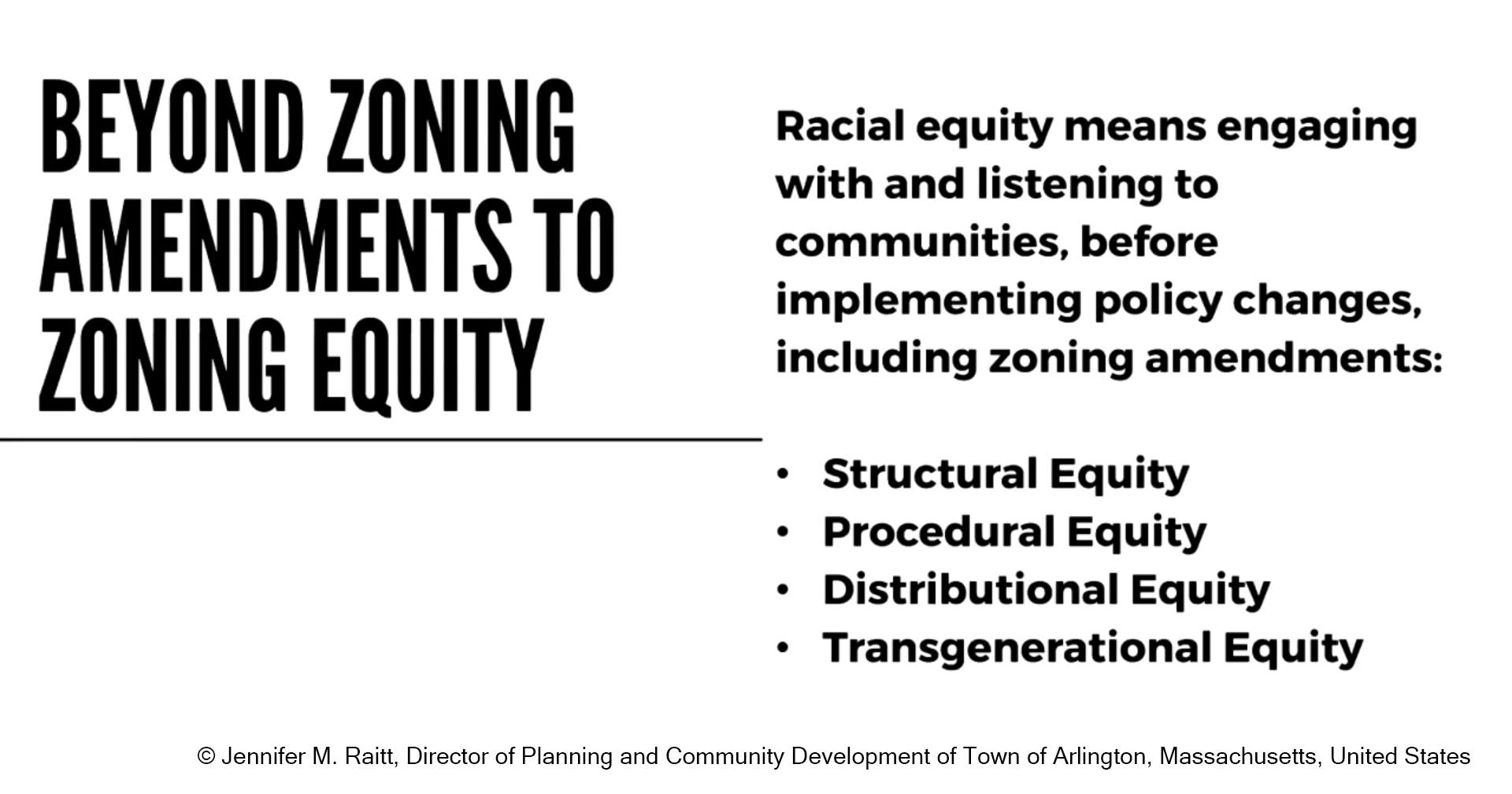10 May 2021
It was quite a phenomenon to watch over 4,000 American planners passionately sharing their experiences and exchanging ideas during last week’s American Planning Association (APA) National Planning Conference.
With RTPI Chief Executive Victoria Hills, I attended a number of sessions during the three-day event, and we were both blown away by the positive energy emanating from all who took part.
The COVID-19 outbreak and the murder of George Floyd put America in flames last year, but a sense of hope was clearly evident as planners discussed how to urgently address racial inequalities in the community and proactively plan for the future, even an uncertain one.
Planners as leaders
Valerie Jarrett (pictured below), President of the Obama Foundation and a champion of equality and opportunity, delivered the opening keynote speech to the conference. She explored the role of planning in infrastructure, housing and COVID recovery, as well as the overall role of planners as leaders – thinking strategically, setting priorities and leveraging community assets.

Valerie further elaborated:
As an overseas guest at the conference, I was inspired, and somehow nicely surprised, by American colleagues’ openness, self-criticism and honesty, which came across from all the presentations - speakers were very frank about the lessons learnt, and how they can do things better in the future.
Valerie Jarrett summarised it in a nice way:
‘Legacy of inequality’
The conference programme was selected by Boston’s Local Host Committee. Just from a quick glance at the number of presentations on ‘Addressing a Legacy of Inequality’, it was obvious that this would be the number one focus of the conference.
In a provocative discussion led by Jennifer Raitt, Director of Planning and Community Development for the Massachusetts town of Arlington, delegates examined the history of land use, planning and zoning in the US, including historic patterns of growth and segregation. An exploration of actions that can centre equity, further fair housing and dismantle discriminatory bylaws, policies and practices reminded me that zoning is a tool which can be useful to do both good things and bad.

Technology in planning
There were also a large number of discussions on technology in planning, including the innovative application of machine learning, artificial intelligence (AI), smart cities, virtual reality, intelligent transport systems, geospatial technologies and crowdsourcing.
One of the speakers gave a thought-provoking remark:
In other words, trusting in the tools to fix policy is dangerous – you will only get the best results if the correct policy is in place at the beginning of the process. At worst, using new tools to fix policy can accelerate the problems that already exist in the system.
Many speakers repeated the same strong message - planning is people-centric and planners should be leaders and positive driving forces to help communities navigate change. It is therefore vitally important for planners to be technologically advanced.
Learning with the future
Research Director Dr Petra Hurtado shared the APA’s latest Foresight programme Learning with the Future, which aims to help planners navigate change and prepare for an uncertain future. Using examples taken from the digitisation of life, AI, climate migration and urban air mobility, she explained potential impacts on our communities and cities.
The discussion matched my current concerns - forward-thinking policies and regulations need to be developed right now to connect the trend patterns and the future of planning.
The pandemic, and the consequent accelerated digitisation of our lives, will have fundamental implications on land use and transportation planning. Access to internet means access to jobs, education, goods, services and entertainment, but it does not mean access to light, clean air and green spaces. Location becomes less significant, but digital inclusion and spatial equality have become priorities. We urgently need to address this future trend in planning policies.
Also, the AI market is expected to grow 20 per cent annually over the next few years. It is said to be the biggest disruptor of all time. We need to ensure planning ethics and the equitable deployment of AI tools.
The world is changing fast - it is vital that the art and science of the planning profession is advancing at the same pace so we can be at the forefront of addressing both foreseeable and unforeseeable issues.
The three-day APA conference was a feast. I was inspired by American planners’ passion, determination and creativity.
The APA and the RTPI have a longstanding friendship which can be traced back to our founders. Town planners need to be united globally to proactively address the opportunities and challenges that coexist in this uncertain era.
There is an ancient Chinese saying, the stones of other hills may be used to polish our gems. I look forward to exploring closer professional collaborations with colleagues across the pond.


